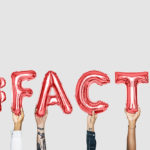Dietary roadblocks
Remembering which foods are forbidden and which ones to force […]

Dealing with diabetes
Diabetes is a condition associated with abnormally high blood sugar levels. During pregnancy, women who are otherwise healthy sometimes develop gestational diabetes, a type of diabetes that usually goes away after baby is born. All pregnant women should be screened for gestational diabetes between 24 and 28 weeks.
Whether you have gestational diabetes or are going into a pregnancy with type 1 or type 2 diabetes, you must maintain good blood sugar control, according to Rachel Brandeis, MS, RD, former spokeswoman for the American Dietetic Association. Unrestrained diabetes can lead to macrosomia, the medical term for an unusually large newborn. A macrosomic baby can suffer from respiratory problems, low blood sugar, and size-related neck and shoulder trauma at birth.
If you have any type of diabetes, it’s important to work with your healthcare provider to create a personalized diet plan.
Mealtime mandates: Diabetes
Combined carbohydrates. Controlling blood glucose levels starts with carbohydrates. Carbs are absorbed very quickly into the blood stream, driving up your glucose levels. Every time you eat, combine your carbs with protein. “You never want to eat carbohydrates by themselves,” says Brandeis. “Protein helps delay the digestion of carbs into the blood stream, which decreases spikes in blood sugar.” A balanced meal can include veggies, fruit or grains and a high-protein source such as meat, eggs or beans. For a healthy snack, pair fruit with cheese or peanut butter.
Regular consumption. Your glucose levels rise when you eat and take a plunge when your stomach is empty. To steady your blood sugar, eat a balanced snack or meal when you wake up in the morning and every three or four hours throughout the day.
Subduing celiac disease
Celiac disease is an autoimmune condition that causes the body to attack itself when the individual consumes gluten, a protein found in wheat, barley and rye. “For someone with celiac disease, even small amounts of gluten can damage the intestinal tract and keep the autoimmune system revved up,” says Shelley Case, RD, author of Gluten-Free Diet: A Comprehensive Resource Guide. If you are diagnosed, it is critical to stay gluten-free to maintain a healthy pregnancy. A celiac patient who doesn’t follow a proper diet has a higher threat of miscarriage and other perinatal complications. Luckily, women with celiac disease who follow a gluten-free diet have no greater pregnancy risks than the general population.
Mealtime mandates: Celiac disease
Fiber. A pregnant mama needs about 25 grams of fiber a day to fend off constipation woes. Most gluten-free products are made with low-fiber white rice and potato flours, so don’t rely on these wheat substitutes for your daily fiber intake. Wild rice, brown rice, corn, quinoa and gluten-free oats are all examples of safe, fiber-filled whole grains. Lentils and black beans pack 15 grams of fiber per cup, so add them to soups, salads and side dishes. And, of course, load up on fruits and veggies.
Iron. All expectant moms need to up their iron intake to create oxygen-carrying hemoglobin for baby. Celiac patients need to be especially careful to get enough of this nutrient (about 30 milligrams a day). “Anemia is one of the symptoms of celiac disease,” says Case. “Individuals on a gluten-free diet can’t have the iron-enriched pastas and breads most people regularly eat.” Get your iron from other rich sources, such as meat, poultry, fish and eggs, and ask your doctor about taking gluten-free prenatal vitamins containing iron.
Eatin’ vegan (or vegetarian)
Vegans and vegetarians can sometimes be the target of reproach over their dietary choices, and having a baby on board only amplifies the criticism. Well-meaning advice from your carnivorous friends and relatives may be discouraging, but fear not: It is possible to follow a balanced vegan diet that is perfectly safe for your budding babe. In fact, as long as they stock their diets full of the right nutrients, vegetarians and vegans often make the healthiest moms-to-be.
Mealtime mandates: Vegan and vegetarian
Protein. Vegan and vegetarian mamas need to be mindful of eating enough protein, which is essential for brewing a baby. “If you’re pregnant with a singleton, your minimum protein intake needs to be 70 grams a day,” says Brandeis. Vegan high-protein foods include seitan (wheat gluten), legumes, nuts and seeds.
Vitamin B12. Found naturally in animal products, vitamin B12 is crucial for red blood cell formation and nervous system function. Deficiency in B12 during pregnancy can lead to developmental issues for baby or even miscarriage. Start your day with B12-fortified cereal and take a supplement.
Calcium. Growing babies need calcium to build their bones and teeth. While non-vegans receive most of their calcium from dairy sources, vegans need to eat at least eight servings a day of calcium-rich nuts, fruits and vegetables. Tofu, figs, apricots, kale, okra, sesame seeds, kidney beans and almonds are all good examples of foods rich in calcium. Vitamin D promotes calcium absorption, so ask your doctor about taking supplements.
Iron. The body absorbs iron from meat more effectively than from vegan foods, which is why vegans and vegetarians need to be wary of anemia. Your healthcare provider may recommend taking an iron supplement during your pregnancy to get your daily 30 milligrams. Eat plenty of spinach, lentils, enriched grain products and other iron-rich foods, and add vitamin C to your meal to help your body absorb the iron.







